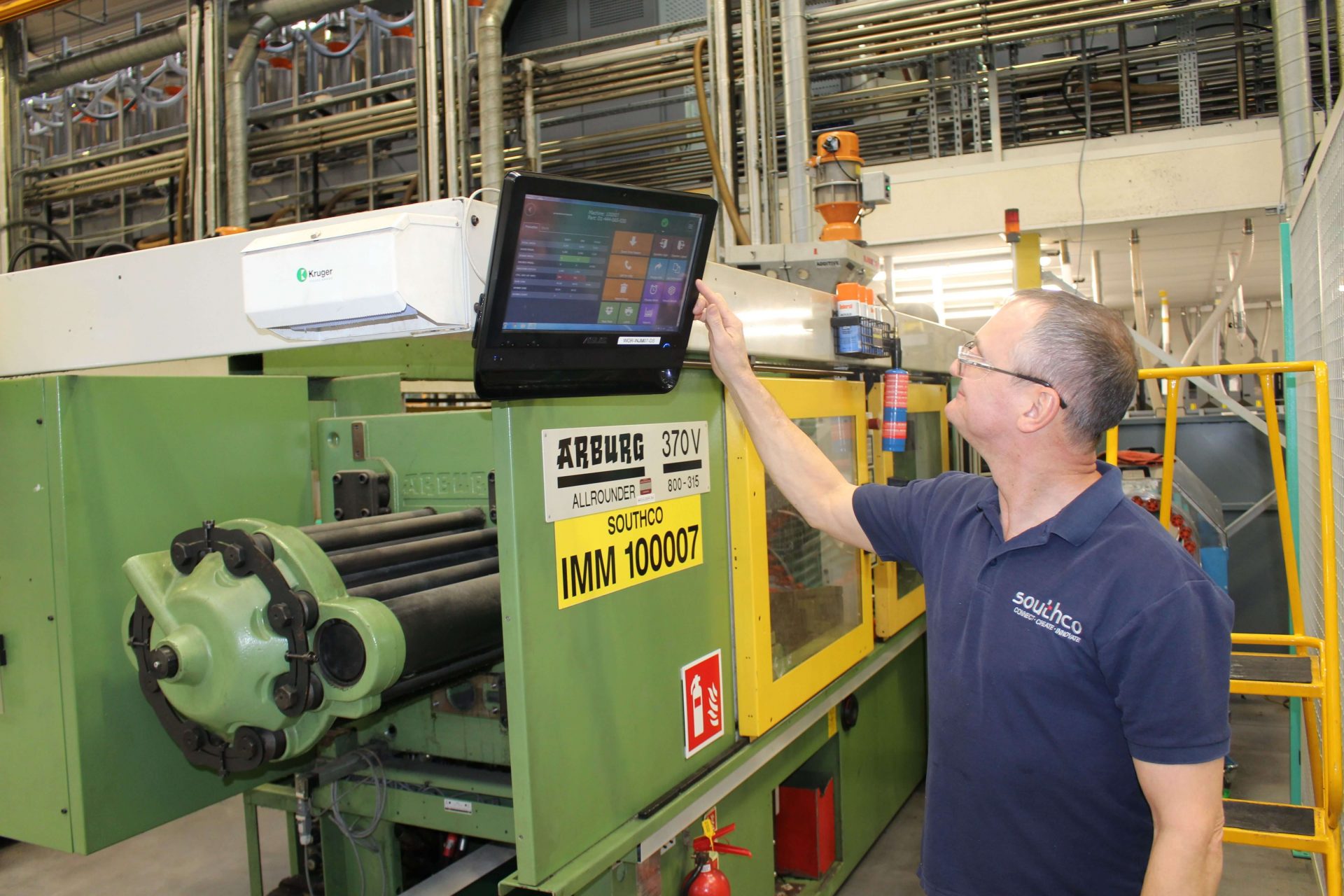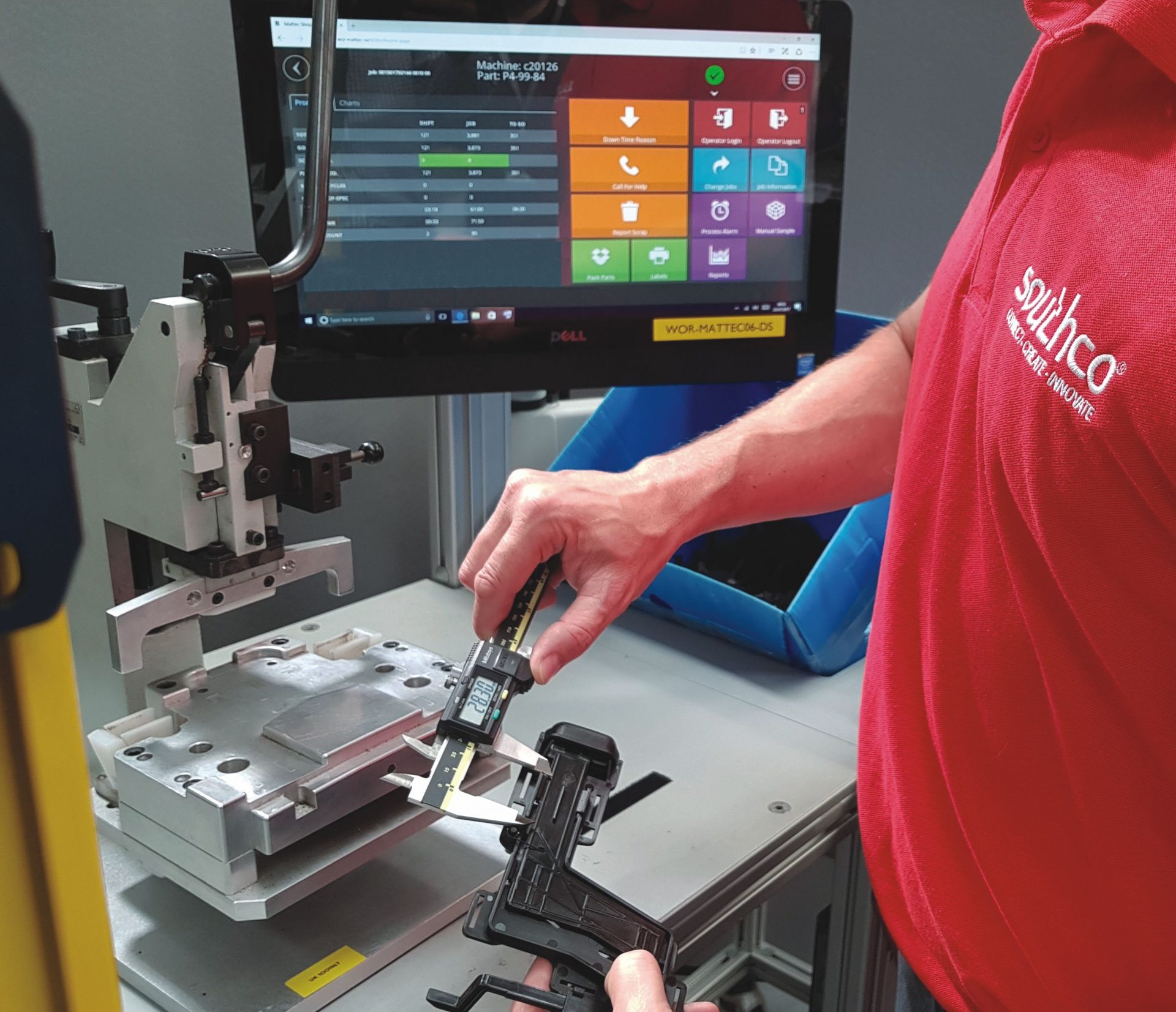November 20, 2018
By Tobi Parker, UK Manufacturing Services Manager, Southco, Inc.
In the age of the fourth industrial revolution, known as Industry 4.0, digital technologies are linking the physical and digital worlds, helping to create a new future of connectivity for manufacturers.
Manufacturers can take advantage of this new era of connectivity, which promises to deliver greater productivity, improved utilization of assets and enhanced decision-making, by linking their operations data with smart manufacturing technologies.
In order to fully leverage the value of operations information, manufacturers will need to embrace Industry 4.0 and understand how the data gathered from their operations footprint fits into the Internet of Things (IoT).
By implementing manufacturing executing software, operations teams can seamlessly blend data and production, optimizing every machine and production run to deliver superior products. Operations teams are transforming facilities into “smart” factories by connecting software with processes to increase efficiency whilst reducing defects, downtime and waste.

By implementing software that ties into the IoT, manufacturers can monitor production and process manufacturing operations in real-time, reducing scrap, waste and machine downtime, while improving cycle times, Overall Equipment Effectiveness (OEE) and productivity.
One commonly held misconception of Industry 4.0 and of the IoT is that they are relatively new concepts in manufacturing. Leading manufacturers are already building smart factories by using software that supports manufacturing, distribution, retail and services organizations. This type of software enables companies to monitor their production and process manufacturing operations in real-time, allowing them to reduce scrap, waste and machine downtime, as well as improve cycle times, Overall Equipment Effectiveness (OEE) and productivity.
This software can be used to track the inputs and outputs of the injection molding machines for instance. By extracting data from a host of different sources, the software organizes all of the information into a visual dashboard which helps to support the improvement in manufacturing processes through continuous analysis. By observing both production control and process control simultaneously, the business can constantly improve the quality of work.
One example where smart technology can enhance operations is through product quality evaluation: before a plastic injection mold opens, the system alerts the operator to whether the end product is good or bad. This translates into a better product for the customer, as quality monitoring is built directly into the process (rather than having to manually inspect each batch). Having more efficient manufacturing production processes enables business to improve all aspects of assembly.
For many manufacturers, one of the greatest blocks to Industry 4.0 is the prospect of implementing it in the first place. Not surprisingly, the potential cost and the impact on efficiency during the implementation period are perceived as major obstacles.
In contrast to commonly held perceptions, the introduction of smart technologies and Industry 4.0 does not need to involve a revolutionary change to the business and its processes. Businesses can take gradual steps towards creating a fully connected smart factory.
Manufacturers can make a smooth progression towards Industry 4.0 by embedding smart technology right at the heart of their facilities, rather than treating it as an add-on. Being able to link the software with other businesses systems such as SAP provides additional benefits.
By linking to an Enterprise Resource Planning system, like SAP, tooling can be allocated almost immediately, meaning new production can commence with limited down time. Secondly, there is no human intervention, which in turn reduces the risk of human error. By building in Industry 4.0 alongside existing systems, manufacturers can streamline implementation, limit downtime and improve product accuracy and quality.
The IoT goes hand in hand with data – having systems in place that work together allows internal teams to identify where operational inefficiencies lie. Being able to more easily locate and analyse the data helps senior management to develop strategies for continuing to meet the Overall Equipment Effectiveness (OEE) standard.
Gaining valuable insight through data isn’t the only advantage of Industry 4.0 for manufacturers. Moving towards the creation of a smart factory offers a host of other benefits. For instance, the Industry 4.0 evolution is enabling organizations to transform their facilities into paperless environments, allowing information on injection molding machines, self-automated assembly, user guides and machine performance to be stored in the cloud. Storing data in a cloud-based application helps to reduce the physical requirement needed to store information on-site in large servers, thus freeing up space and reducing power requirements.

Southco, a leading manufacturer of engineered access hardware solutions, has been building its smart factory since 2007, when the company introduced the Epicor Mattec Manufacturing Execution System (MES).
For many manufacturers, Industry 4.0 understandably brings up as many concerns as it does perceived opportunities. Making gradual but focused changes on an on-going basis offers many benefits.
Manufacturers can gain from looking at what Industry 4.0 can do for them and how it can support their goals, by adopting smart technology that enhances specific areas of their operations business. In this way, manufacturers can build in technologies that ultimately support their long-term visions for process improvement and better quality products.
 Tobi Parker is UK Manufacturing Services Manager for Southco, where he is part of a vibrant and dynamic IT regime that helps to leverage major business and operational advantage for the company.
Tobi Parker is UK Manufacturing Services Manager for Southco, where he is part of a vibrant and dynamic IT regime that helps to leverage major business and operational advantage for the company.
Scott Ellyson, CEO of East West Manufacturing, brings decades of global manufacturing and supply chain leadership to the conversation. In this episode, he shares practical insights on scaling operations, navigating complexity, and building resilient manufacturing networks in an increasingly connected world.